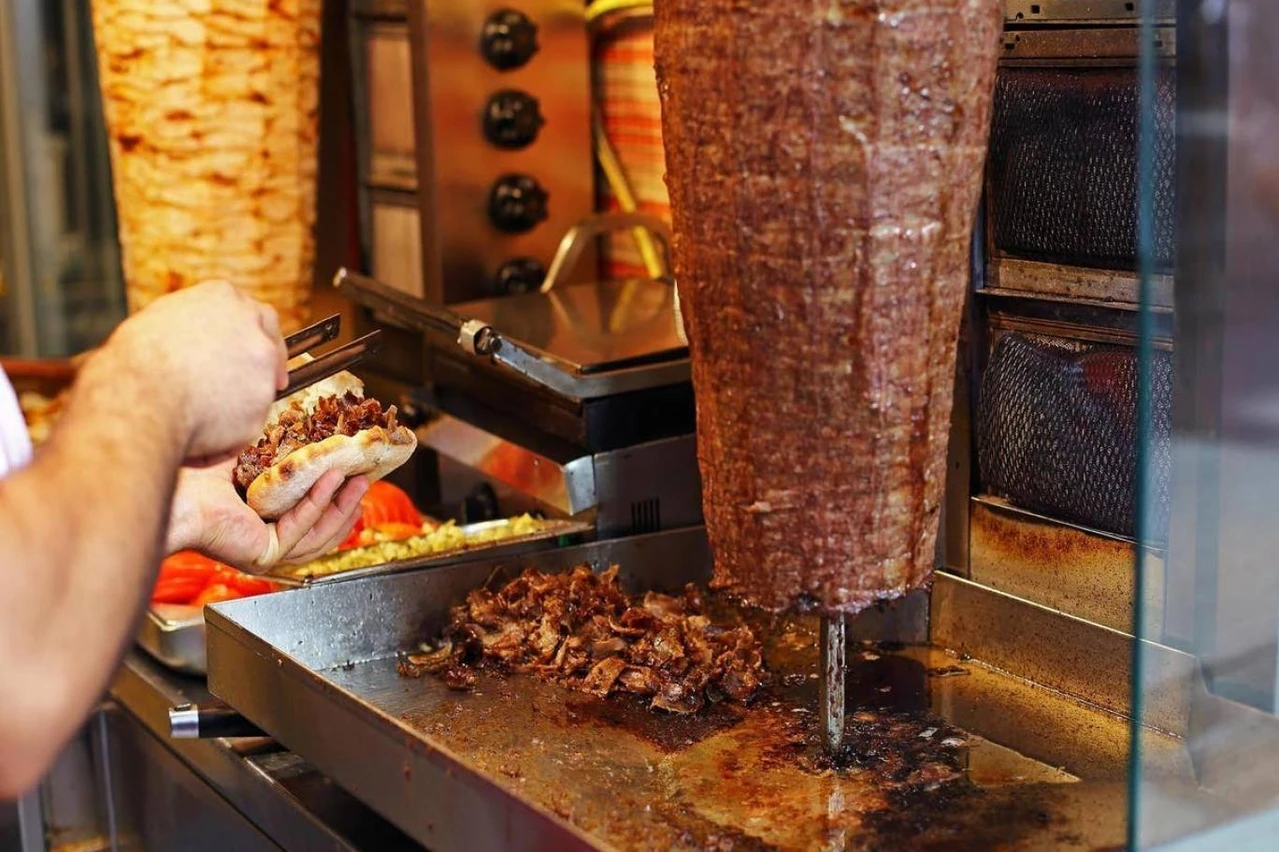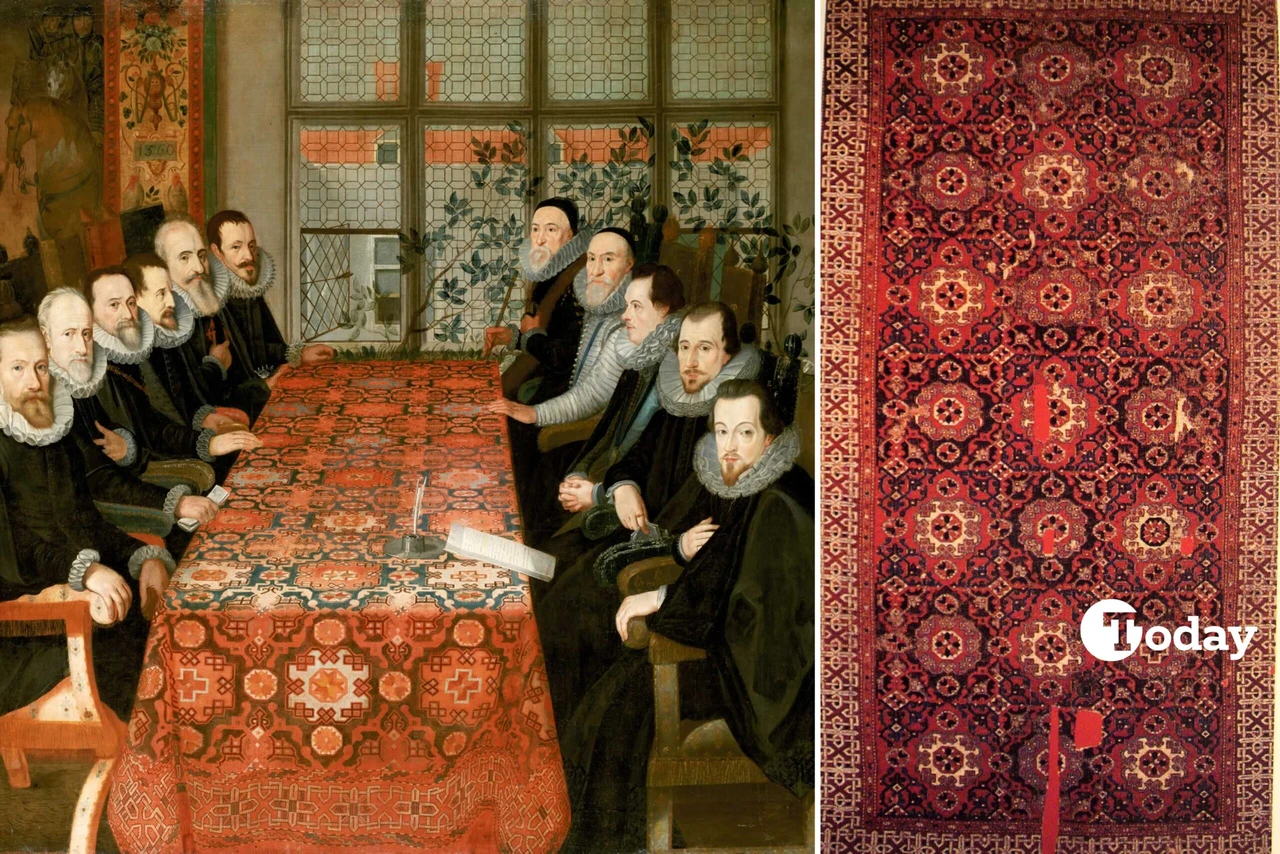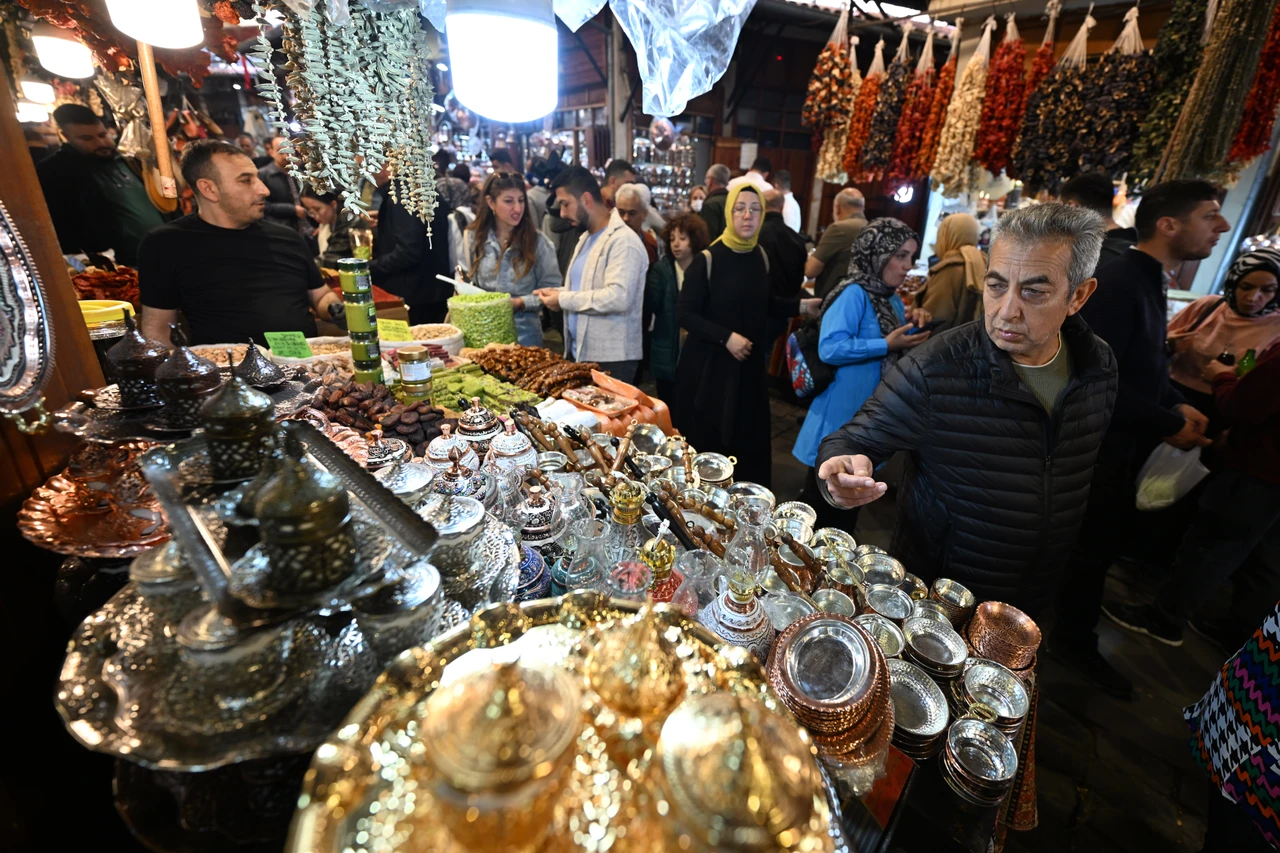EU application to obtain TSG certification for famous Turkish ‘doner’

In Turkish cuisine, ‘doner,’ or meat products made by skewering thinly sliced pork cutlets and frying them vertically before a fire, has great cultural importance
The European Union’s official journal Wednesday focused on Türkiye’s rich culinary legacy, after applying to register the term “doner” under EU regulation.
This application is to obtain Traditional Specialty Guaranteed (TSG) certification for “doner,” a beloved beef dish with a long history and vital cultural significance in Türkiye.
The application outlines the registration requirements and highlights the use of traditional techniques in producing “doner.” In Turkish cuisine, “doner,” or meat products made by skewering thinly sliced pork cutlets and frying them vertically before a fire, has great cultural importance.
According to historical documents, the term “doner” was first used in Istanbul in the early 1800s and expanded across the Ottoman Empire.
Over the years, little has changed about its preparation process, typified by marinating, stacking on a skewer, and vertical rotation while cooking.
The application also highlights doner’s migration to Europe, especially its debut in Greece in 1922 and its subsequent success in Germany throughout the 1970s. “Doner” quickly gained notoriety in Germany as a symbol of Turkish immigration and a staple of European street food culture.
However, the application’s filing has triggered discussions over the name “doner” and its connotation with some geographic regions. In Europe, it’s commonly called “doner Kebab,” even though “doner” originally referred to the cooking method rather than a specific place.
This naming trend has raised concerns about cultural appropriation and the generalization of the name “kebab” to various grilled meat meals.
The EU application highlights ‘doner’s’ distinctive qualities, such as its own flavor profile, traditional cooking process, and usage of regional spices. It also highlights the industry’s economic importance, with Europe’s ‘doner’ sector valued at around 3.5 billion euros.
EU laws state that stakeholders have three months to express concerns in response to the application.
During this time, conversations about the preservation and acknowledgment of culinary traditions will be facilitated between EU member states, food producers, and advocates for cultural heritage.
“Doner” continues to be a popular street meal representing Türkiye’s rich culinary history and cross-cultural interaction as discussions progress. Besides paying tribute to its Turkish roots, its prospective designation as an EU Traditional Specialty Guaranteed product would protect its authenticity for future generations.
Source: AFP



